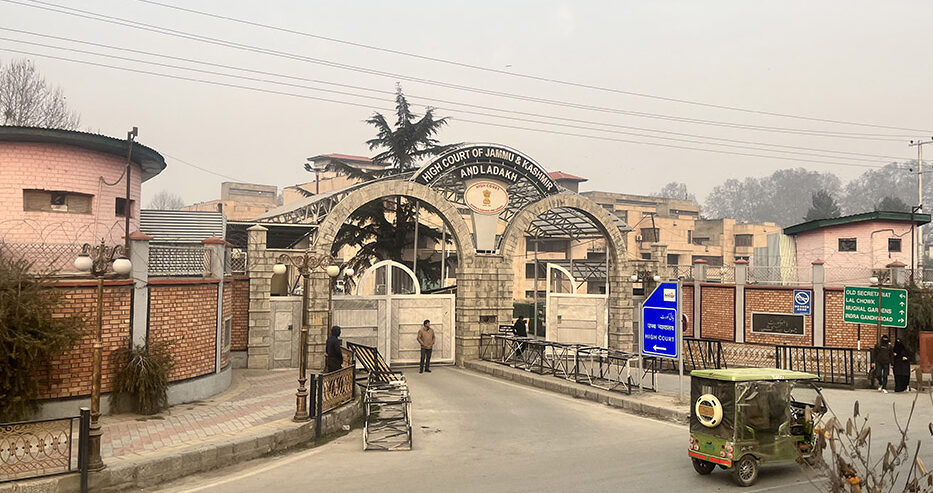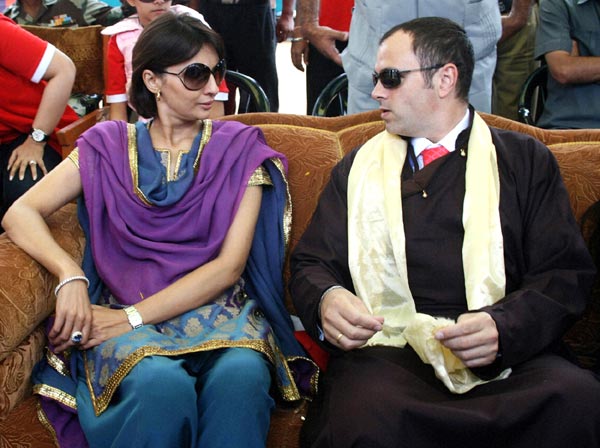Various courts in a series of petitions involving divorces and maintenance laid down norms for situations, in which the relations break down, Syed Shadab Ali Gillani reports

The Domestic Violence Act of 2005 (the Protection of Women from Domestic Violence Act), is a crucial legal framework in the fight against domestic abuse. This comprehensive legislation defines domestic violence and establishes provisions to protect and empower survivors.
The act identifies domestic violence as any act causing harm to the aggrieved person, encompassing their health, safety, life, dignity, or overall well-being. It serves as a vital instrument in India’s efforts to combat and eliminate domestic abuse, providing a legal basis to ensure the safety and rights of women who are victims of such violence. Statistical insights highlight its continued relevance in addressing the complex challenges associated with domestic abuse nationwide.
According to 2022 data from the National Crime Records Bureau (NCRB), the Jammu and Kashmir police recorded 3716 cases of crimes against women. These included 1606 cases of attempts to outrage modesty, 287 cases of rape, 500 cases of cruelty by the husband or his relatives, and 886 cases of kidnappings and abductions of women.
Regional Breakdown
Of the 500 cases of cruelty by husbands and their relatives, specific regions witnessed varying levels of reported cases. Notably, Srinagar recorded the highest with 70 cases, followed by Jammu with 60, Rajouri with 58, Kupwara with 38, Poonch with 25, and Doda with 49. Other regions reported cases ranging from 6 to 24, reflecting the diverse geographic distribution of domestic violence incidents.
In Delhi’s busy legal scene, advocate Fizah Baba, a matrimonial law specialist in the Delhi High Court, recently highlighted changes in maintenance cases. Recent landmark judgments, like the Supreme Court’s Rajneesh vs. Neha case, shifted away from fixed percentage approaches. The court stressed the need for both parties to provide income affidavits, rejecting rigid formulas like 25 per cent of the gross salary. Another Supreme Court ruling in November reinforced considering the husband’s actual income before deciding on maintenance.

In a ground-breaking November judgment, the Jammu and Kashmir High Court clarified maintenance and divorce intricacies. The court firmly stated that denying maintenance to a wife is not allowed unless divorce is conclusively proven. This ruling clarified that mere claims of divorce without proper evidence are insufficient to justify withholding spousal support.
Recent cases like Zahoor Ahmad Dar vs. Jamila Banu and Mehroz Akhtar vs. Dr Azmat Gauhar expanded legal discussions into divorce proceedings. The conversation also delved into domestic violence cases, revealing challenges for men in countering false accusations and exploring legal intricacies.
The dialogue examined the consequences of domestic violence convictions, with penalties varying by severity. Details of the appeal process, including higher court appeals, were discussed. Advocate Fizah Baba highlighted a key point from the Jammu and Kashmir High Court: A Muslim wife cannot be denied maintenance without properly establishing the fact of divorce.
Recent Rulings
In a significant ruling, the Jammu and Kashmir High Court clarified the nuanced application of The Protection of Women from Domestic Violence Act (DV Act). The court, in a decision on December 1, established a crucial precedent, emphasising the importance of substantial evidence before a woman can claim compensation or maintenance under the DV Act.
The court highlighted the DV Act’s primary goal of providing swift aid to distressed women while cautioning against undeserved advantages. It underscored that the legislation doesn’t automatically guarantee windfall gains, like maintenance or compensation, without careful judicial discretion.

In essence, the ruling aims to balance protecting women from domestic violence with preventing misuse of the DV Act. It emphasises the need for judicious consideration of each case’s specific circumstances and discourages exploiting the Act for personal gain.
This legal landmark reinforces the commitment to upholding the spirit of the DV Act while discouraging opportunistic claims that may compromise the integrity of the legislation. The court’s decision reflects a thoughtful approach to justice, promoting fairness and equity in the application of laws designed to protect vulnerable individuals.
Alumni Regulations
In a recent legal dispute involving a woman’s claim of domestic violence, Justice Puneet Gupta overturned a trial court order mandating joint payment of Rs 5 lakh as interim maintenance by the husband and his brother. The trial court had instructed the husband to allocate 25 per cent of his monthly salary, and the brother-in-law to share the financial burden, leading to a contested legal battle.

The appellate court partially granted the respondents’ appeal, annulling the trial court’s interim compensation mandate. It argued that such relief should be considered post-trial due to the absence of evidence justifying compensation at the current stage. This decision prompted the aggrieved woman to elevate the matter to the High Court, seeking a more nuanced examination of her claims.
However, the High Court, with a measured perspective, asserted that the mere relationship of the respondents as husband and in-laws did not automatically entitle the petitioner to compensation. The court insisted on the presence of compelling evidence on record before such financial relief could be granted. “The beneficial legislation does not contemplate windfall provisions for the aggrieved,” observed the Court, setting the tone for a thorough scrutiny of the case.
Upon meticulous examination, the High Court observed that the trial court had issued directives for interim maintenance payments without a proper assessment of the husband’s actual salary. Considering this, the High Court upheld the appellate court’s modification of the trial court order, stressing the need for a more informed decision.
“The Court cannot arbitrarily allocate 25 per cent of the gross salary to the wife without knowledge of the husband’s actual income. The trial Court must ascertain the husband’s income and then make a maintenance order commensurate with his financial circumstances,” clarified the High Court, putting a spotlight on the importance of precision in legal proceedings.
In a move that extended beyond mere financial considerations, the High Court also directed the respondent-husband to ensure the petitioner’s accommodation in a secure and safe place, taking note of the husband’s commitment to providing the same. It was a recognition of the holistic nature of justice, acknowledging that the right to a safe environment is as crucial as financial support.
Under these conditions, the Court ruled that the petitioner was entitled to interim maintenance from the respondent’s husband. However, it underscored the importance of due diligence, stating, “The trial Court must gather necessary information about respondent No 1’s salary before determining a reasonable amount for interim maintenance in favour of the petitioner-applicant.”
Omar Divorce Plea
In an unrelated but similar legal development, the Delhi High Court has dismissed the divorce plea filed by former Jammu and Kashmir Chief Minister, Omar Abdullah, marking a critical chapter in his prolonged legal battle with his estranged wife, Payal. The court upheld the family court’s decision, asserting that Omar’s allegations of cruelty lacked substantiation and were deemed “vague and unacceptable.”

A division bench comprising Justices Sanjeev Sachdeva and Vikas Mahajan echoed the family court’s findings, stating, “We find no infirmity with the view taken by the family court that the allegations of cruelty were vague and unacceptable.” The ruling emphasised the appellant’s failure to establish acts qualifying as cruelty, either physical or mental, leading to the dismissal of the appeal.
Omar and Payal Abdullah’s marital saga began in September 1994, but the couple has been living separately for an extended period. The family court’s initial rejection of Abdullah’s divorce plea in 2016 cited a lack of evidence supporting the “irretrievable breakdown of the marriage.” It underscored his inability to substantiate claims of “cruelty” or “desertion” and the failure to provide circumstances justifying the breakdown of the relationship.
Undeterred by the family court’s decision, Omar sought recourse in the High Court in September 2016, contending that the marriage had irretrievably broken down since 2009. The recent ruling, affirming the family court’s stance, dealt a blow to Abdullah’s efforts to legally dissolve the union.
In a parallel judgment, a single-judge bench of the high court increased the maintenance amount payable by Omar Abdullah to Payal Abdullah. Justice Subramonium Prasad mandated a monthly maintenance payment of Rs 1.5 lakh to Payal and Rs 60,000 each to their two sons during their enrolment in law school.
While enhancing the maintenance amount, the judge noted that, though fathers are not legally responsible for the college education of major children, Abdullah was still deemed liable to pay Rs 60,000 for the education of his son. This decision marked a departure from previous proceedings under Section 125 of the Code of Criminal Procedure (CrPC), where the trial court had granted interim maintenance of Rs 75,000 per month to Payal Abdullah and Rs 25,000 to their son until he reached the age of 18.















